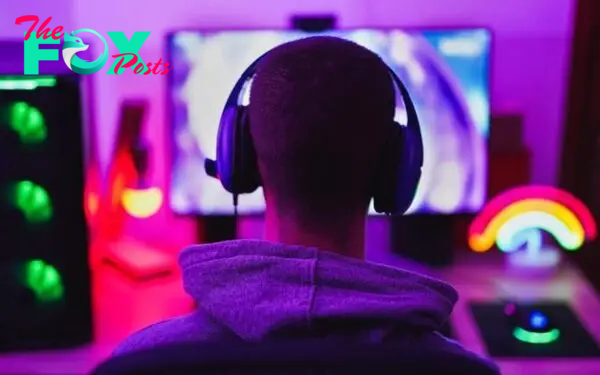The world of online gaming has transcended its origins as a solitary pastime. Today, online Games act as fertile ground for vibrant social communities, fostering connections, shaping identities, and even iNFLuencing real-world behavior. This article explores the multifaceted social impact of online judi slot gaming communities, examining how pixels and polygons have woven a new social fabric in the digital age.
Beyond the Scoreboard: A Sense of Belonging in a Digital Age
For many, online gaming communities provide a vital sense of belonging. They offer a space where individuals can connect with others who share their passions, forge friendships that transcend geographical boundaries, and find acceptance within a supportive digital environment. This is particularly true for individuals who may struggle with social interaction in traditional settings. Online communities offer a safe space to express themselves freely, build confidence, and develop social skills that can translate to the real world.
The sense of belonging fostered by online gaming communities extends beyond shared interests in Games. Many communities function as online havens for marginalized groups, offering a platform for self-expression and fostering a sense of solidarity. LGBTQ+ Gamers, for instance, can find a safe space to connect with others who share their identities, challenging stereotypes and building a supportive network.
From Casual Chats to Collaborative Raids: Building Bonds Through Shared Experiences
Online gaming communities offer a unique blend of synchronous and asynchronous communication. Players can engage in casual conversations through text chats, voice communications, and even in-game emotes, fostering a sense of camaraderie and shared experience. The collaborative nature of many online games further strengthens social bonds. Players work together to achieve common goals, strategize against opponents, and celebrate victories as a team. These shared experiences forge lasting bonds and a sense of mutual respect among community members.
The sense of camaraderie extends beyond the virtual realm. Many online gaming communities translate into real-world interactions. Players organize meetups, attend gaming conventions, and even form social groups based on their shared passion for specific games. These real-world connections solidify the friendships forged online and further demonstrate the social impact of online gaming communities.
Beyond Fun and Games: Fostering Skills and Identity Exploration
Online gaming communities can be breeding grounds for skill development and identity exploration. Players learn teamwork, communication, and problem-solving skills through collaboration in online Games. Complex online Games often require strategic planning, resource management, and quick decision-making, all of which contribute to cognitive development. Additionally, the ability to navigate complex online social interactions and build relationships with diverse individuals hones one’s social skills.
Online gaming communities also offer a platform for identity exploration. Players can experiment with different avatars, online personas, and in-game roles, allowing them to test different aspects of their personalities and potentially discover new facets of their identities. This digital exploration can translate to increased self-confidence and a more nuanced understanding of oneself in the real world.
The Dark Side of the Pixelated Coin: Challenges and Considerations
While the social impact of online gaming communities can be overwhelmingly positive, there are also potential drawbacks to consider:
- Cyberbullying and Toxicity: Online anonymity can embolden some players to engage in cyberbullying or toxic behavior. Hostile environments can discourage participation and create a negative atmosphere within the community.
- Social Isolation and Addiction: While online communities foster connection, excessive gaming can lead to social isolation in the real world. It’s crucial to maintain a healthy balance between online and offline interactions.
- Misogyny and Harassment: The online gaming landscape hasn’t always been welcoming to women and marginalized genders. Harassment and misogyny can be significant issues within some online communities, hindering inclusivity and creating a hostile environment.
These challenges highlight the importance of fostering positive and inclusive online communities. Developers can implement robust moderation tools and reporting systems, while players can actively advocate for inclusivity and respectful behavior.
The Future of Online Gaming Communities: Building Bridges and Expanding Horizons
The future of online gaming communities is bright. As technology continues to evolve, we can expect even more immersive and interconnected online experiences. The lines between online and offline communities are likely to blur further, fostering deeper social connections and innovative forms of communication.
Beyond Entertainment, online gaming communities have the potential to become platforms for social change. They can be used to promote diversity and inclusion, encourage civic engagement, and connect individuals across cultural boundaries. As online gaming continues to grow in popularity, the social impact of online gaming communities will undoubtedly continue to evolve, shaping the digital landscape and potentially transforming the way we connect with each other.
Conclusion: More Than Just Games – A Digital Tapestry of Connection
The social impact of online gaming communities extends far beyond the realm of entertainment. These digital spaces offer a sense of belonging, foster collaboration, and provide a platform for skill development and identity exploration.









































